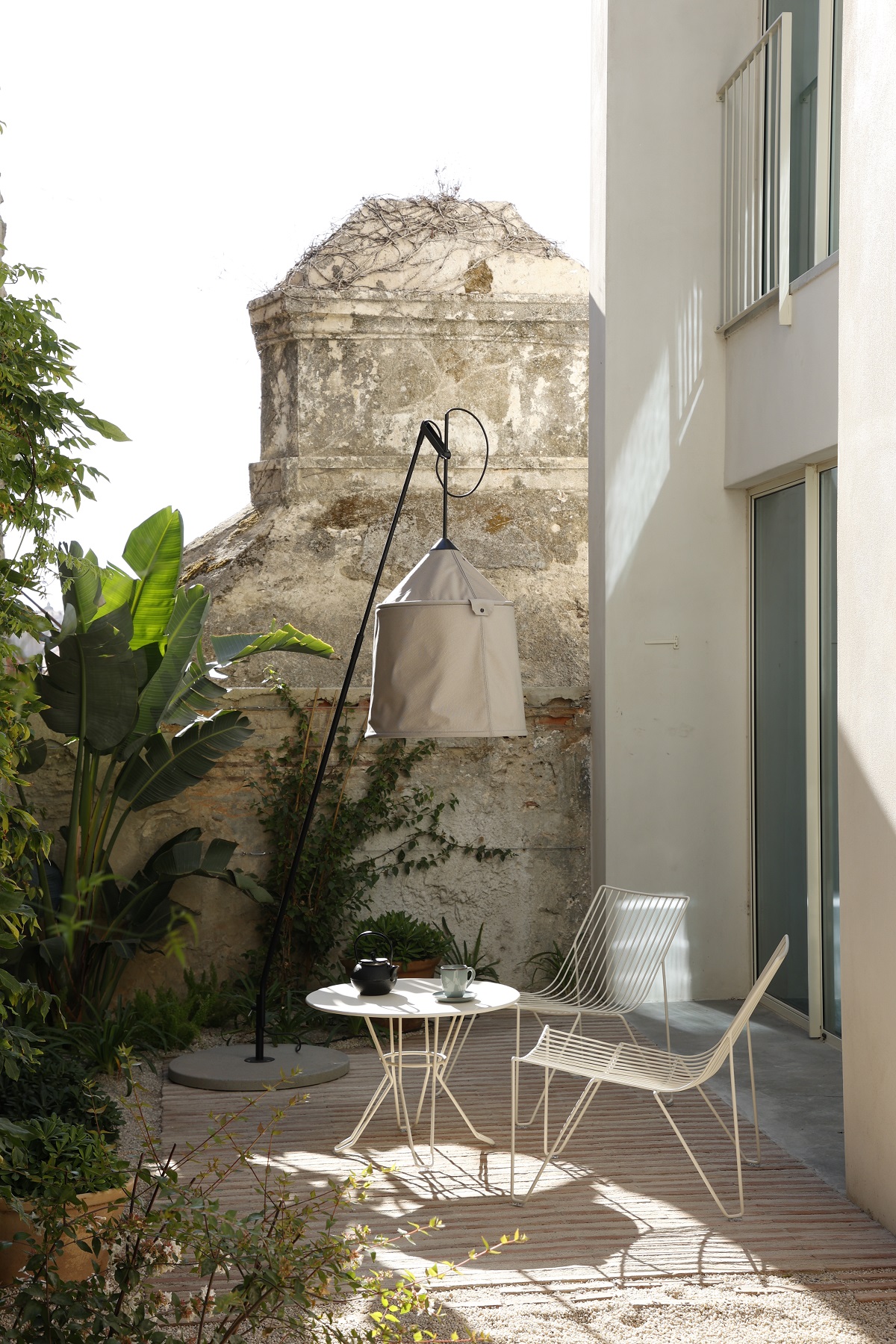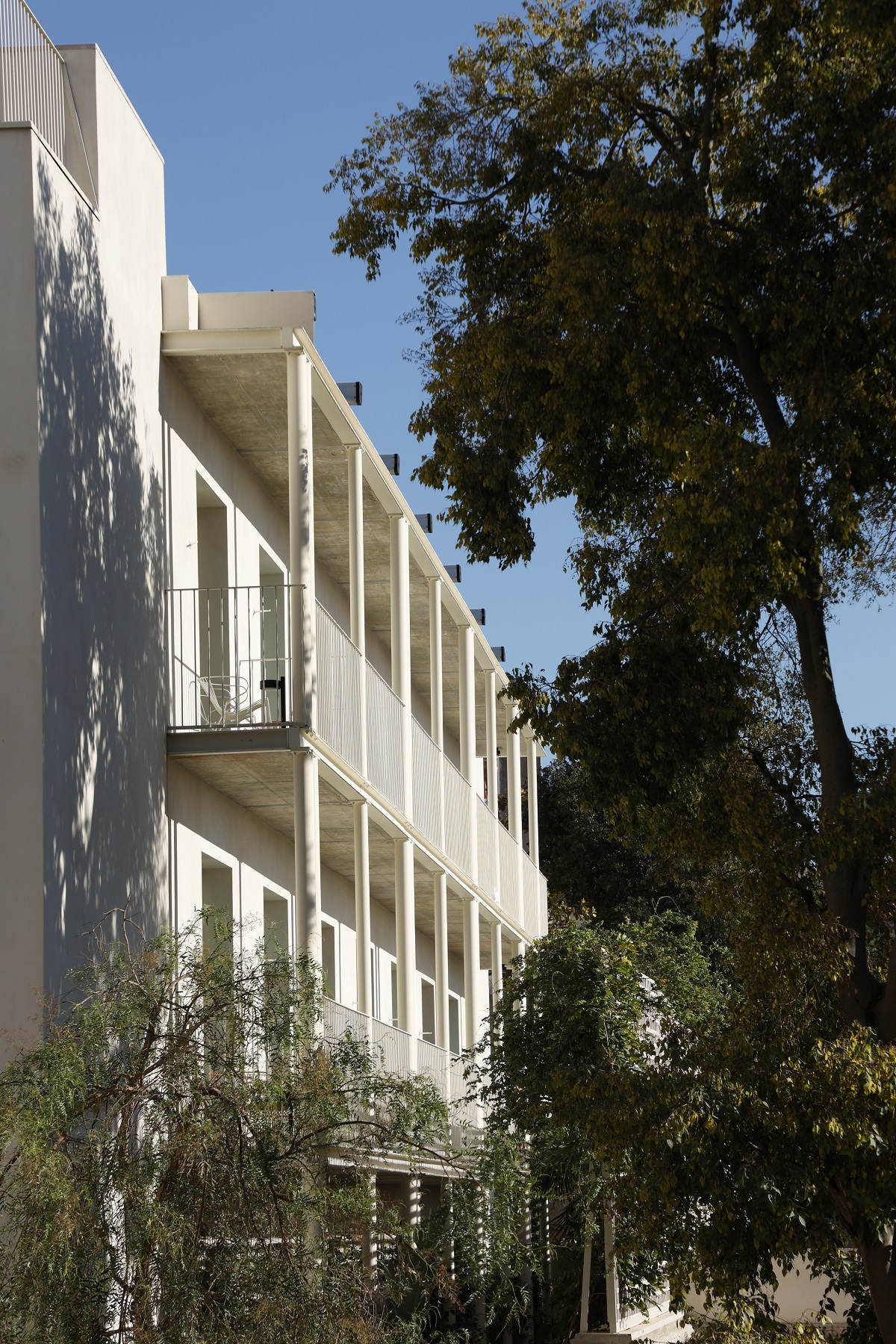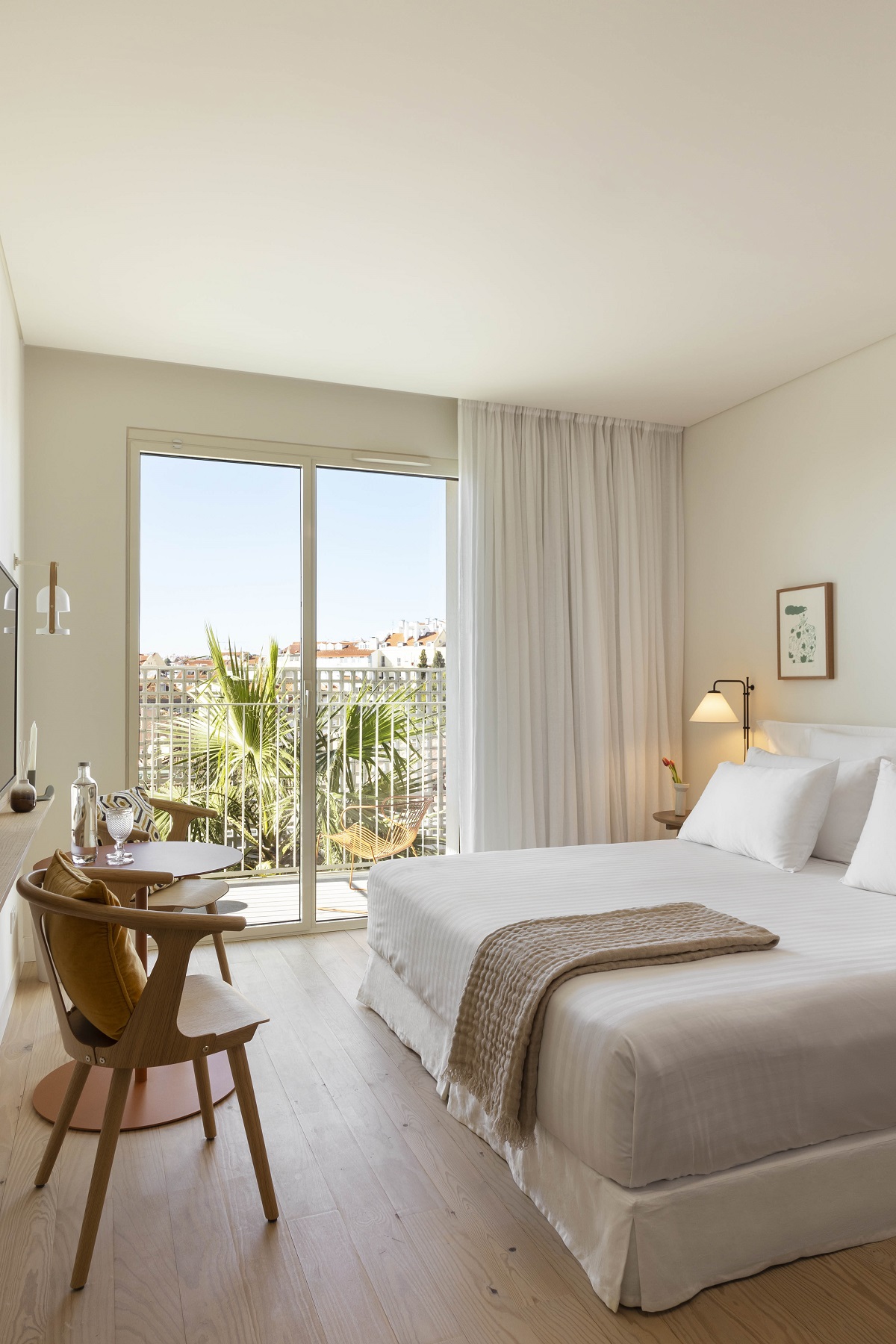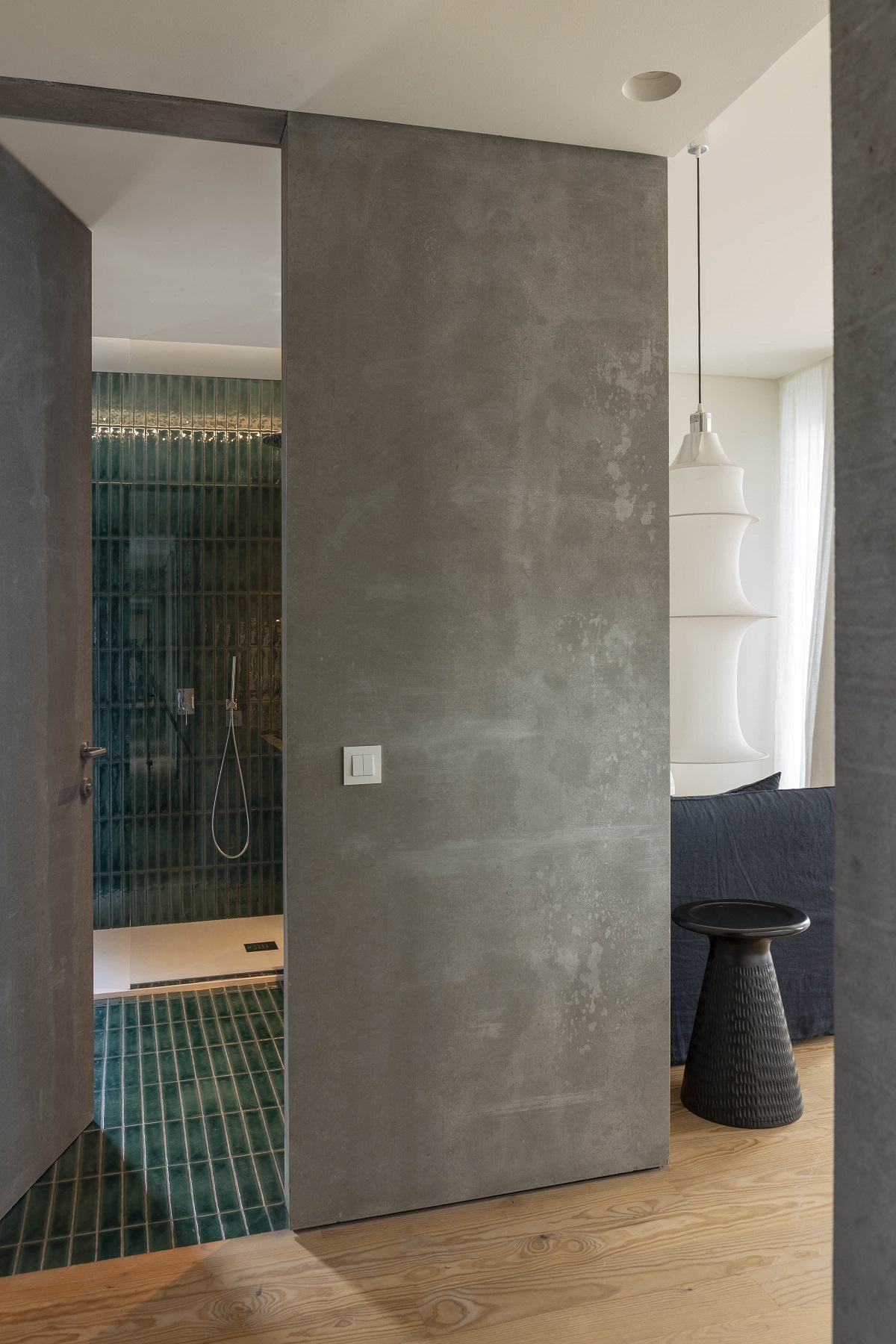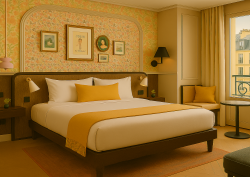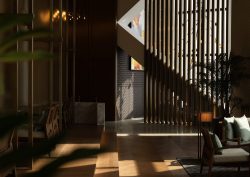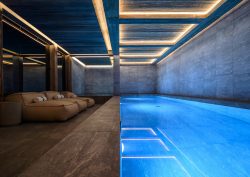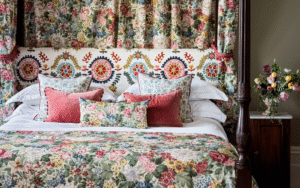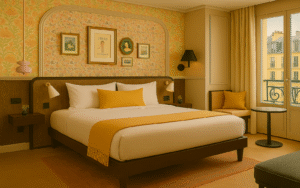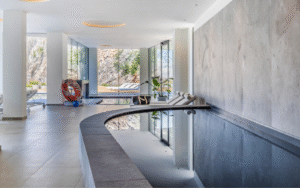Hotel Pátio do Tijolo has opened its doors in Portugal, offering a blend of authentic Lisbon tradition with a serene contemporary style…
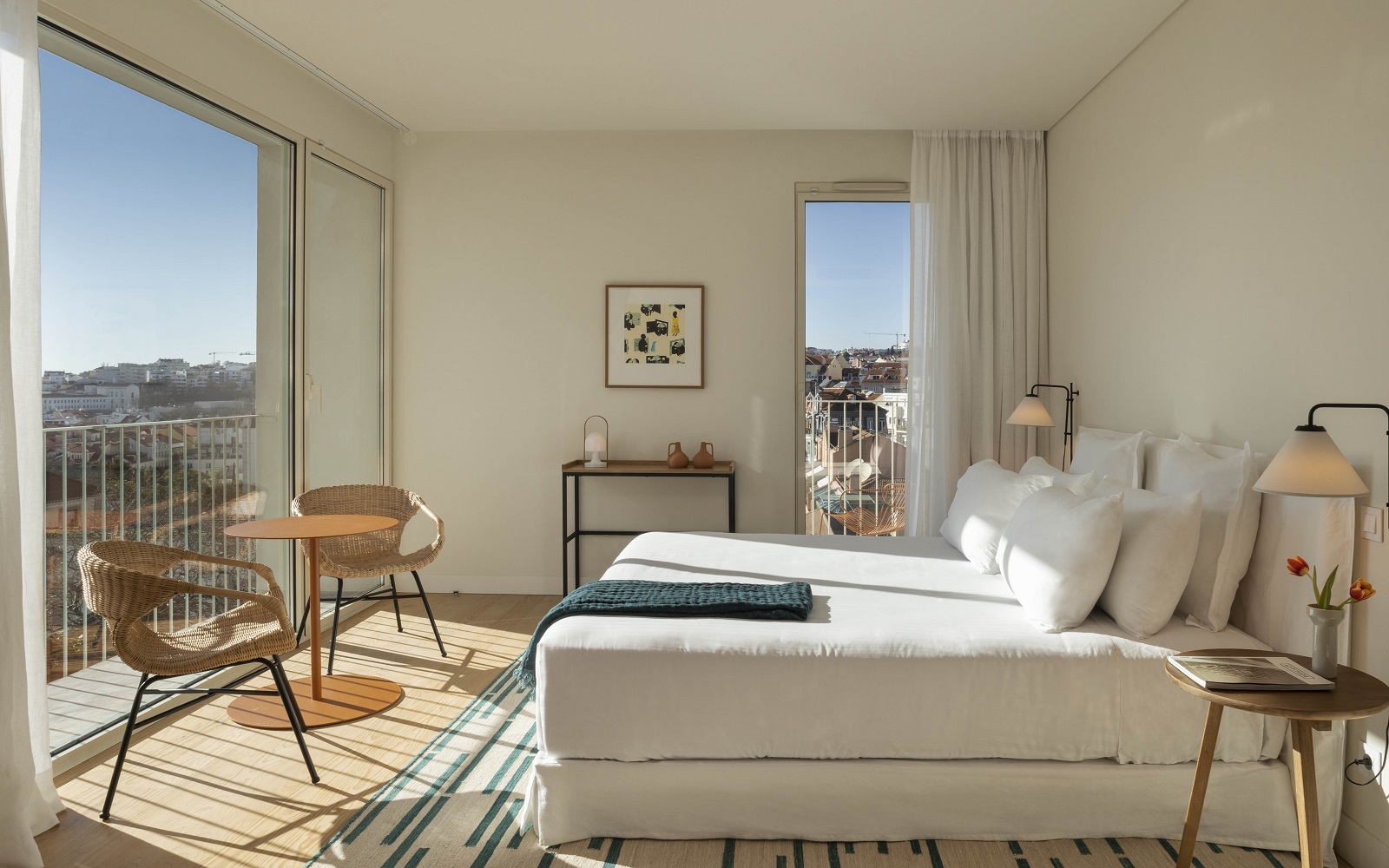
Strategically located between the bohemian district of Bairro Alto—with its countless bars and inviting local music spots—and the Príncipe Real neighbourhood—with a more authentic and residential atmosphere— is the new Hotel Pátio do Tijolo, offering a discreet space for gatherings and relaxation in the heart of Lisbon.
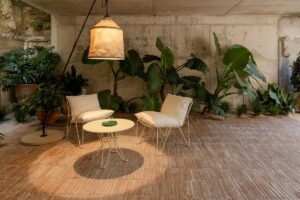
Image credit: Hotel Pátio do Tijolo
Pátio do Tijolo is a 24-room boutique hotel where the clean, minimalist style offers a calm refuge for today’s travellers. The design is centered around its shared spaces, including the plant-filled courtyard, kitchen and Loureiro salon, while at the same time opening up to the exterior and fostering interaction, the trading of ideas and experiences.
Drawing on the ‘slow life’ concept, the project promotes a style of living that is slowed down and contemplative, while respecting the traditional values of each space, such as the preference for natural products and the awareness of our surroundings. This has been achieved through a combination of sustainable construction processes, together with a design that blends into the surrounding architectural heritage.
The warm tones of Lisbon’s limestone were selected for the building exterior, while the flooring recalls the pinkish hues of Lioz marble. The most visible side of this new enclosure, reached via a passage that feels almost secret, is inspired by local Pombaline façades of the 18th century, with a metal structure and slender columns, forming a wall of continuous balconies that resemble a belvedere. A design that not only respects the historical context in which it is situated, but also extends to the simple and serene interiors.
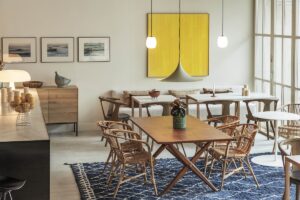
Image credit: Hotel Pátio do Tijolo
Created by the Spanish interior designer Natalia Tubella and the team led by Carina Seelig, from the Lisbon-based architecture studio Base Geométrica, the public areas offer a perfect spot to relax, read, work or enjoy the simple pleasures of the local cuisine, such as a careful selection of cheese and meats, pasteis de nata, or refreshing drinks available at any time of day. Each space has been planned to bring together good design and the welcoming, functional character of a modern guesthouse.
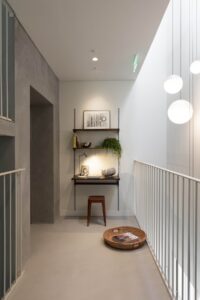
Image credit: Hotel Pátio do Tijolo
Neutral colours and natural materials coexist with contemporary design classics such as lighting by Spanish firms Santa & Cole and Marset, handmade Portuguese ceramics and textiles in organic fibres and contemporary photography by local artists. The three floors of the hotel also showcase design from Barcelona.
“Portugal is Lusitania, the country of light,” explains designer Natalia Tubella. “We have sought to take something of the light of Barcelona there, with lamps and other items, created in the city I am from and where I live”.
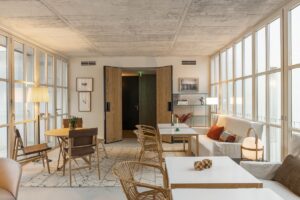
Image credit: Hotel Pátio do Tijolo
The guesthouse concept is extended to the library in the lounge, which is expanding with new titles on Portuguese history, culture, and poetry. The private spaces retain this comfortable balance, with rooms that offer pale woods, serene hues and soft fabrics. The bedrooms—available in different sizes and layouts—offer large windows and balconies with views over the Tagus river and the iconic red 25 de Abril bridge.
The landscape designer Elena Somalo combined tropical species with plant types from Central Europe. This fusion offers a broad range of volumes, forms and textures, which contrast with the dominant transparency and colour palette. Acacias, jacarandas, lemon and pomegranate trees grow in harmony with agapanthus, palms and bird of paradise flowers, evoking the evergreen and lush planting of local interior courtyards. In addition, dozens of native species of trees were planted, providing the neighbourhood with a space of biodiversity and contributing to the ecological development of the community.
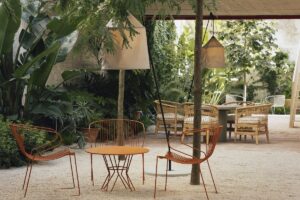
Image credit: Hotel Pátio do Tijolo
Care for the environment is also a consideration in the ‘zero-kilometre’ kitchen at Pátio do Tijolo, where the traceability of each ingredient is a fundamental value and where the goal is to celebrate the quality of traditional and seasonal products, provided by small local companies and cooperatives, reinforcing the commitment to support fair trade and the development of producers. the property brings all these elements together to create the the welcoming, personal touch of a guesthouse, with the attentive quality of service of a luxury hotel, with highly dedicated staff who invite visitors to become part of Lisbon’s urban life, from the shelter of this beautiful and well-kept courtyard.
Main image credit: Hotel Pátio do Tijolo





